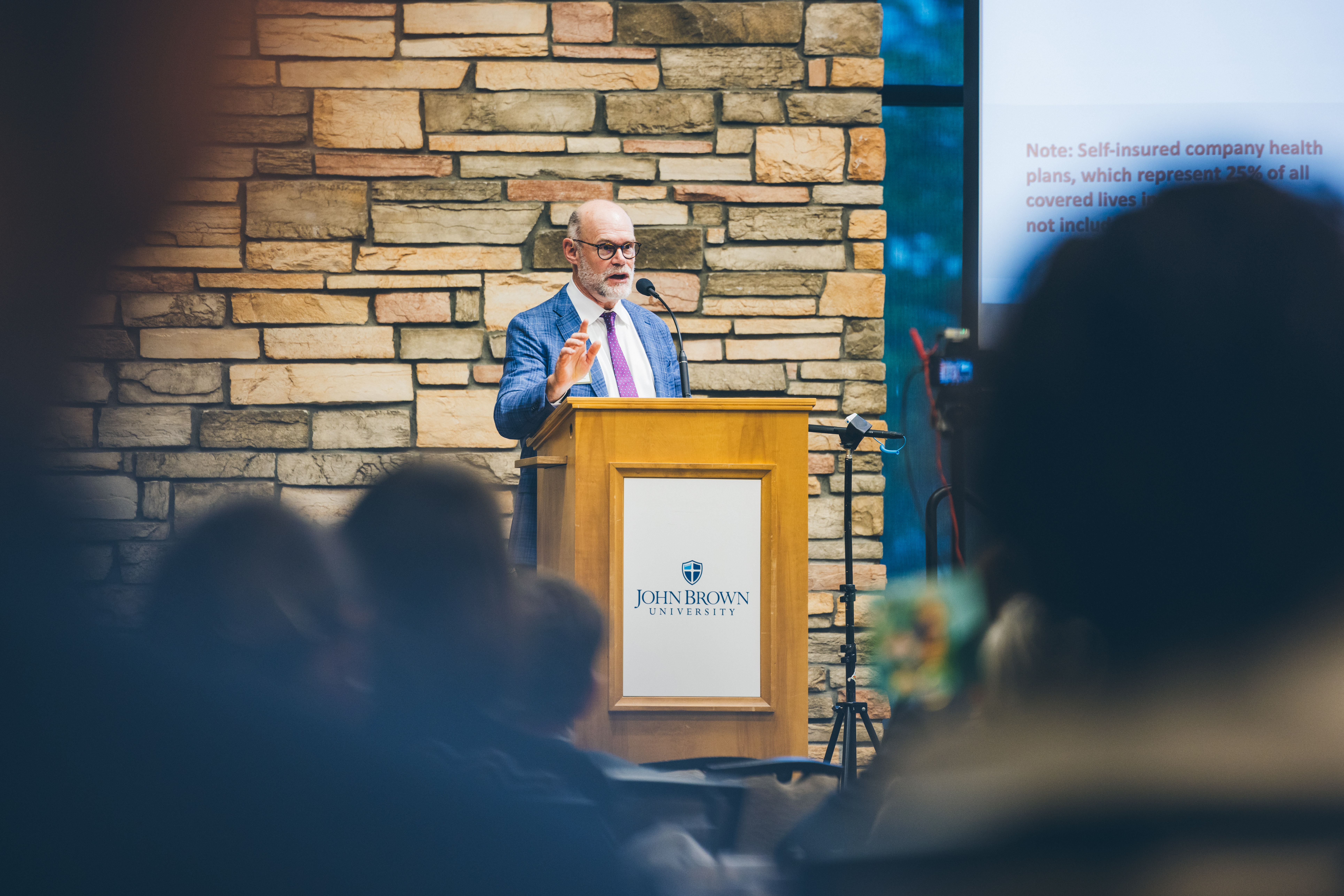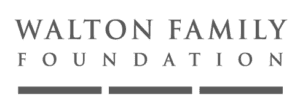 The Northwest Arkansas Council and Heartland Whole Health Institute today released “Northwest Arkansas Health Care Vision 2030: Continuing the Transformation,” a report conducted by Tripp Umbach, outlining progress and future goals to transform health care in the region.
The Northwest Arkansas Council and Heartland Whole Health Institute today released “Northwest Arkansas Health Care Vision 2030: Continuing the Transformation,” a report conducted by Tripp Umbach, outlining progress and future goals to transform health care in the region.
Since the creation of the Health Care Transformation Division in 2019, Northwest Arkansas achieved significant milestones, including reducing patient outmigration from nearly $1 billion in 2018 to $695 million in 2023. Investments totaling $529.5 million have laid the foundation for future growth. The health care sector has become a major economic driver, with its gross regional product (GRP) increasing by 80% from 2018 to 2023, outpacing the overall regional economic growth of 37%. Estimated projections indicate the sector could reach $6.1 billion by 2030, representing a 144% growth rate, according to Tripp Umbach.
Given that Washington and Benton counties surpassed 590,000 residents in 2024 and estimated projections show a population of over 1 million by 2050, the strain on health care services will continue to grow.
The Vision 2030 report outlines a comprehensive roadmap to strengthen Northwest Arkansas’ health care system, ensuring it meets the needs of a rapidly growing population while positioning the region as a national model for excellence in health care delivery. Key strategies include:
- Advance Value-Based Payment and Health Policy Reform: Advocate for higher reimbursement rates and a value-based care model that prioritizes patient outcomes. This effort aims to ensure the financial sustainability of health care providers while improving quality and reducing overall costs. Engaging employers and policy stakeholders is critical to this transformation.
- Expand Health Care Specialty Services: Develop centers of excellence and attract research-based subspecialists to further reduce outmigration and establish Northwest Arkansas as a destination for advanced, high-quality care. This includes building partnerships for specialized medical programs and developing a Level I trauma center to meet the needs of a rapidly growing population.
- Expand the Health Care Workforce: Invest in graduate medical education (GME) through Washington Regional Medical Center and University of Arkansas for Medical Sciences (UAMS) Northwest to increase the number of locally trained physicians. Alice L. Walton School of Medicine, opening in July 2025, will complement these efforts by focusing on whole health principles, ensuring a robust pipeline of medical talent.
- Foster a Collaborative Health Care Research and Innovation Ecosystem: Strengthen research partnerships and increase biomedical research funding. The establishment of the Institute for Integrative and Innovative Research (I³R) at the University of Arkansas is positioning Northwest Arkansas as a hub for cutting-edge health care research, attracting talent and fostering innovation.
“Reducing patient outmigration by $255 million is a testament to the collaborative efforts of our Health Care Transformation Division,” said Nelson Peacock, president and CEO of the Northwest Arkansas Council. “I want to thank all members of the division for their dedication and hard work. Collaboration has been, and will continue to be, the key to achieving our vision of a value-based, patient-centered health care system. We have set a strong foundation over the last five years, but there is much more work needed to reach our goal of becoming a health care destination.”
Walter Harris, president and CEO of Heartland Whole Health Institute, highlighted, “The transition to value-based care represents a transformative opportunity to improve health outcomes and lower costs. By focusing on preventive and holistic care, we can elevate health care delivery across the region. However, this vision requires strategic investment and policy changes to address existing gaps.”
Opportunities and challenges outlined in the report include:
- Opportunities: Expanding research and innovation, growing GME programs, and engaging employers in preventive health initiatives will drive economic growth and better health outcomes.
- Challenges: Workforce shortages, rising costs, and reimbursement disparities are obstacles that require unified efforts and sustained collaboration among regional stakeholders.
The report also emphasizes nearly $2 billion in ongoing and planned investments from 2018 through 2030, including the establishment of dozens of new graduate medical residency positions at Washington Regional Medical Center and a groundbreaking $700 million affiliation agreement between Mercy, Alice L. Walton Foundation, and Heartland Whole Health Institute, with collaboration from Cleveland Clinic, to expand specialty care.
Vision 2030 serves as a call to action for continued collaboration and investment to make Northwest Arkansas a premier destination for high-quality, innovative health care.
For more information and to read the full report, click here.























